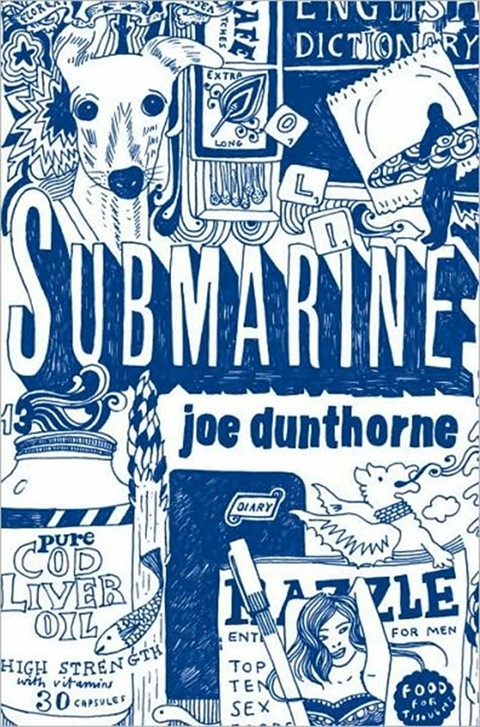AnOther caught up with Joe Dunthorne, who wrote the fashion story introductions in the current issue of AnOther Magazine, to find out more about his unique and continuously-evolving career after his poetry reading at the recent Stoke Newington
Just over six months ago, celebrated author Joe Dunthorne was invited to devise short introductions for the issue's main features – the result, inspirational shorts that provide an extra literary layer to AnOther's S/S12 stories.
Dunthorne is fast becoming the next big name on the University of East Anglia’s alumni list, joining a unique heritage of writers that include Kazuo Ishiguro, Ian McEwan and Charlie Higson. His first novel Submarine won critical acclaim before being adapted into a feature length film in 2010. Produced by Ben Stiller and scored by Alex Turner, the film, which shared its name with the novel, afforded Dunthorne his first taste of fame; which was then cemented by the success of his second novel Wild Abandon.
With each devastating offering, Dunthorne pushes himself to develop his understanding of what it means to write. He now turns his hand to poetry and if the audience’s reaction at the recent Stoke Newington Literary Festival is anything to go by, the results are conclusive: this is the author’s funniest and most poignant work to date.
Following the huge success of the first-person Submarine, what made you decide to switch to the third-person in Wild Abandon?
You call yourself a writer without having written in the dominant narrative perspective? I had to do it. I floundered for about a year trying to find my camera angle, if that makes sense. I kept tripping over or falling out of windows. I couldn’t stay focused. Eventually I realised I had to see the scene through the perspective of one character and in that respect, it’s more of an ‘over the shoulder’ narrator than an all-seeing eye. It was hard. I felt like I’d been putting off lots of very hard lessons about writing that I then had to face.
Is your success the result of this determination to push yourself?
My attitude throughout it all has been that failure is the assumed result. I think having that as my guiding principle has been a good thing. The creative writing course at UEA is also great and allowed me to develop a friendship-group of writers, which really helped. We wrote poems and went to the pub and drank and performed them. It was like a clan and we all spurred each other on.
"My attitude throughout it all has been that failure is the assumed result"
Can you tell us more about your first collection, which you are currently in the process of compiling?
The pamphlet was published with Faber, so they have first refusal on the completed collection. I’ve been scanning my shelves to find the shortest collection comprising the least amount of pages to see what I can get away with. I think I can get away with about 56 pages, so that’s what I’m aiming for. But then thirty of those will just be the same as my pamphlet.
You described the process of writing the introductions for the latest issue of AnOther Magazine as “halfway between writing a poem and doing a word search.” Poetry is less open-ended than prose, much more of a puzzle. Is this what attracted you to it?
Like the third-person voice in Wild Abandon, it’s been technically difficult and I suppose that’s because I’ve been writing more prose than poetry in recent years. On the other hand, it’s closer to music. I have been in bands before and as a teenager, music was my main ambition. Perhaps that’s why I love poetry and feel it’s the most enjoyable part of my writing. I love Frederick Seidel and I love David Berman too. I can’t recommend Berman enough. I tell everyone to read him. He’s a poet but he’s a musician too and plays in The Silver Jews. He also founded Pavement with Scott Kannberg in 1989. In fact his best poem in my opinion is Snow, which gives you some idea of what my work is aspiring to.
Joe Dunthorne is one of eleven authors to contribute short stories for Dazed and Confused's forthcoming Literary Issue. Dunthorne’s Faber New Poets pamphlet was published in 2010. He will finish writing his first complete collection later this year. Submarine was published by Hamish Hamilton in February 2008 and Wild Abandon was published by Hamish Hamilton in August 2011. The film adaptation of Submarine was released in 2010 and was produced by Ben Stiller.
Text by Nathalie Olah
